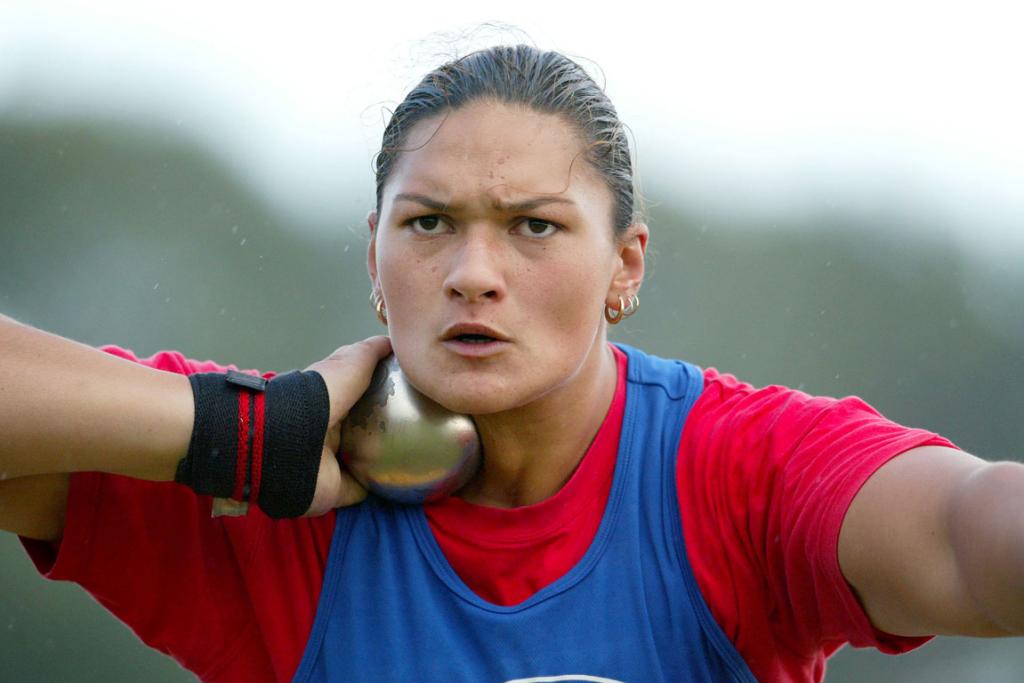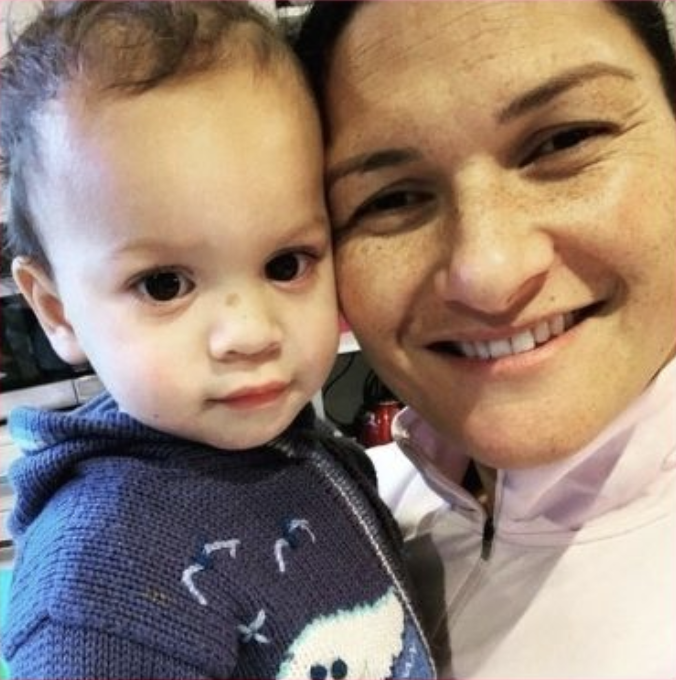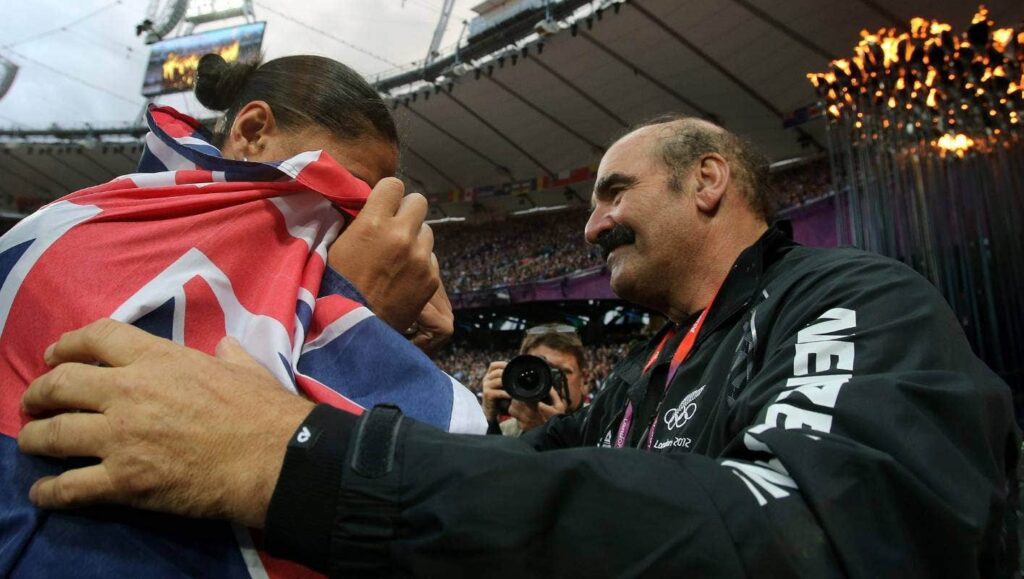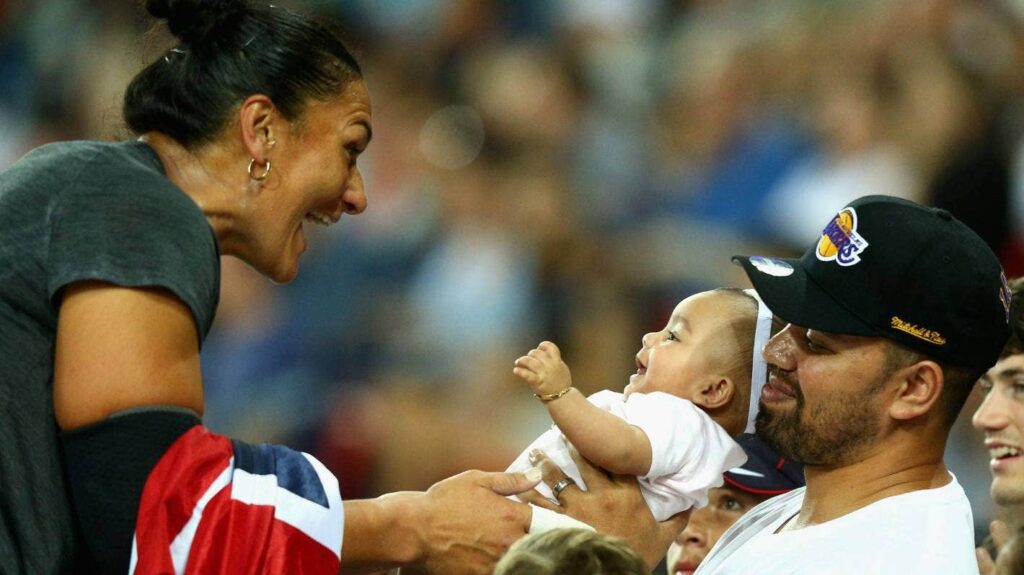To stay at the top of your game in any sport for 22 years is one thing, but to time and time again break through the status quo is another. Having dominated on both of these fronts throughout her life, the latter is where Dame Valerie Adams is redirecting her energy after retiring from professional athletics earlier this year.
When she was an up and coming athlete, she said that it was challenging trying to fit in. Girls that looked like her were not the norm in the world of track and field, and she was told that she should go and play netball. This never felt more true than the moment she appeared at the Olympic Games in 2008. Shot put had long been an event dominated by Russians and Germans, and so the appearance of a Samoan girl from South Auckland was highly unusual. Preconceived ideas were soon shattered about her place on the field when Adams took home gold. It wasn’t just a breakthrough moment for shot put or for her career, Valerie’s gold was the first Olympic gold medal in track and field for New Zealand since John Walker won the 1500 meter race in 1976.

There’s a certain methodology to the way that she operates, and hard work is at the heart of it. This is something that becomes apparent during her very candid and insightful conversation with Dominic Bowden on the WellBeings podcast in the lead up to the launch of her new documentary, More Than Gold. Adams is the first kiwi to be featured on WellBeings, where he speaks to global thought leaders and changemakers who are redefining the way that we think about looking after ourselves. She says “There are so many Valerie Adam’s out there. It’s about them being prepared to put in the work. If it were easy, there’d be a lot more gold medalists out there.” She also credits her success to the fact that she was doing it for her late mum, who passed away when Valerie was only 15 years old. At such a young age, she found that fire you see out there on the world stage in a desire to honor her beloved mother by seeing how far she could take her natural abilities and potential. Training was how she processed her grief.
She really believes that there are choices that you make, and the passing of her mum could have been the first of many opportunities to tap out and become part of a statistic, part of the status quo, but she chose a different life, one that wouldn’t have been considered “normal” where she came from. “If you want things to be different, you do have the power to change it” she says.
In the same breath, she is so proud of her heritage. “It’s important for me that I stay true to where I came from. I still remember where I came from, where I am now, and I’m grateful and appreciative”. This is what has taken her full circle and back to her roots where she is now fully immersed in helping to change the status quo within her community.

In the podcast she opens up to Dom about that moment when she found out that her little boy, Kepaleli, had Type 2 Diabetes and how that forced her and her family to change a lot of things about their lifestyle. As an athlete, she is no stranger to being conscious about what she ate, but that was about herself. Now with a son whose life relied on decisions around food, the reality of how her community interacts with food really hit home.
Whilst the type of diabetes her son has, Type 2, has nothing to do with lifestyle and is something that people are born with, Type 1 diabetes is brought on by sugary diets and lack of exercise and has taken the lives of many of her loved ones, so much so, that it has become the norm to get diabetes eventually, and most people laugh it off, making jokes about it as a way of outwardly coping with the fact that they’ve also been taken by the disease. The way forward, she says, is not by telling people what they can and can’t eat. She says, “I don’t know if you like being told what to do Dom, I certainly don’t. I especially don’t want to be told how to eat. Food brings families together. It’s not about restriction, it’s about the tools”. She goes on to explain that it’s so much about community support and coming at things from a non-judgemental place and changing people’s mindsets around it being ok to not be ok. “I’m hoping a light switch goes off.. Now to make changes”. How do we make those changes in the country? She believes that it starts with being more supportive and encouraging of each other, something us kiwis are really bad for.

One of the darkest moments in her career, she recalls, was seven days during the London Olympics in 2012. She won a silver but should have won gold. The media and newspapers were tearing her apart for letting down the nation, and it was so hard on her mentally that that she could not stay in the Olympic Village and had to escape to Paris. Only seven days later her silver turned to gold and she was made a national hero when her Belarusian rival was stripped of her title for using banned steroids. She asks us to really think twice before writing something nasty about our sportspeople when they are down, and shift towards being encouraging and supportive not only to the people in our community and our everyday lives, but to the people that are out there on the front lines representing us as well.
Now, a mother, she does worry about this kind of pressure that comes at every kid because of social media. She says that all we can do is lead by example and show our kids that we don’t need to worry about what other people think.

She did just that when people were saying that she couldn’t compete after having children. “My goal in Tokyo was to win a medal, I didn’t care what color, but I had two kids… who had ruined my body, but I wanted that last say. I had already been written off before I even started on that journey, and I thought, screw you.” Once again she didn’t listen to the noise, but dug deep into her belief in herself. Being up there on the podium, in Tokyo with her kids and holding up her bronze medal “Was the best feeling of my life,” she says, ”Because I felt like I’d won a gold medal, just because of the journey it took to get here. Right through from the diagnosis of my son, the pandemic, to right here in Tokyo. My fourth Olympic medal for my country was my most amazing”. This is what she is most proud of and wants other women to see. She jokes that men do have it a lot easier, but says that, “You can have it all. You can be a mum and an athlete and have a career.”
Who’s telling you you can’t? Is it you?
Dame Valerie Adams has been up against the status quo more than a few times, and from this very candid and insightful conversation with her, here are eight key things to remember about defying it:
- If you want it, go get it. Where you come from does not define you.
- Remember where you came from but know that you have the power to choose your own life. You always have a choice.
- When something big happens in your life, “How you act in that moment will define who you will become.”
- Just because you don’t look like the others, doesn’t mean you don’t deserve to be there.
- Get rid of the judgment. Be the solution. For instance, “Do you need a buddy to walk with today?” Just be that friend, be that person.
- Be encouraging and supportive of each other. That’s how we will make real change.
- Everyone else can write you off before you write yourself off.
- You can have it all. You can be a mum and an athlete and have a career.
Listen to the conversation with Dominic Bowden HERE.

